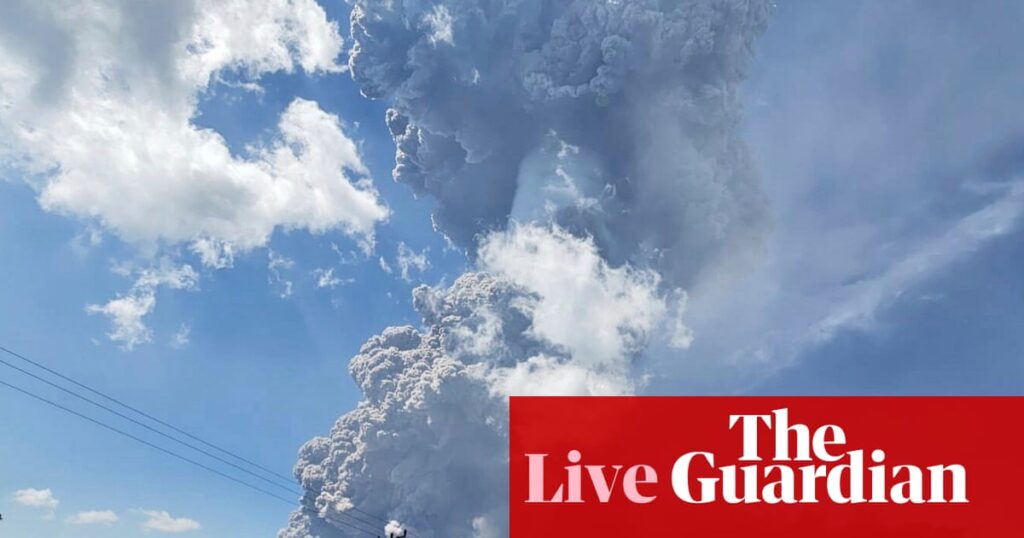
At least five flights between Australia and Bali have been delayed or cancelled following the latest eruption of Mount Lewotobi Laki-Laki in Indonesia. The eruption, which occurred on Monday, marks the second such event in less than a month, prompting airlines to closely monitor the situation for passenger safety.
Virgin Australia cancelled three return services and is assessing the ash cloud movement to determine the safety of Tuesday’s scheduled flights. A spokesperson for the airline emphasized, “The safety of our guests and crew is our highest priority and our team of expert meteorologists are closely monitoring the situation and ash cloud activity.” Similarly, Qantas and Jetstar have also experienced disruptions, with Qantas delaying two flights and Jetstar cancelling several due to volcanic ash.
The volcano, located on Indonesia’s tourist island of Flores, has a history of eruptions, with the most recent significant activity occurring in mid-June. This event forced the cancellation of numerous flights to and from Bali. In November of the previous year, a series of eruptions resulted in the tragic loss of 10 lives.
Impact on Tourism and Local Economy
The frequent eruptions of Mount Lewotobi pose a significant threat to the tourism industry, a vital part of the local economy. The island of Flores, known for its picturesque landscapes and cultural sites, attracts thousands of tourists each year. However, the unpredictable nature of volcanic activity can deter visitors and disrupt travel plans.
Tourism operators are concerned about the long-term implications of such natural events. According to a local tour operator, “Every time the volcano erupts, we see a drop in bookings. It affects not just us, but the entire community that relies on tourism.”
Historical Context and Geological Insights
Mount Lewotobi Laki-Laki is part of a volcanic complex that includes its twin, Mount Lewotobi Perempuan. The region’s geological activity is influenced by the subduction of the Indo-Australian Plate beneath the Eurasian Plate, a process that has created a chain of volcanoes across Indonesia.
Indonesia is home to over 130 active volcanoes, making it one of the most volcanically active countries in the world. The country’s location on the Pacific Ring of Fire contributes to frequent seismic and volcanic activity, which poses challenges for disaster preparedness and management.
Safety Measures and Future Precautions
In response to the ongoing volcanic activity, airlines and local authorities are implementing safety measures to protect travelers and residents. Meteorologists and volcanic experts are working closely to provide real-time updates on ash cloud movements and potential hazards.
Experts emphasize the importance of robust monitoring systems and evacuation plans to mitigate the risks associated with volcanic eruptions. “Continuous monitoring and timely communication are key to ensuring safety,” stated a volcanologist from Indonesia’s Geological Agency.
As the situation develops, airlines remain vigilant, ready to adjust flight schedules as necessary to ensure passenger safety. Travelers are advised to stay informed about the latest updates and heed any travel advisories issued by authorities.
The eruption of Mount Lewotobi serves as a reminder of the dynamic and often unpredictable nature of the Earth’s geological processes. While it presents challenges, it also underscores the resilience and adaptability of communities living in the shadow of these natural wonders.





